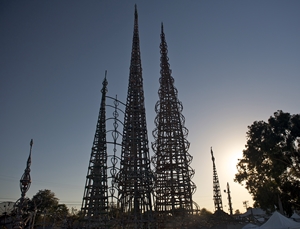18 February 2014. University of California at Los Angeles today started a crowdfunding platform to finance research and service projects by faculty and students. The platform, called UCLA Spark, began with five appeals including research projects in engineering and public health.
Crowdfunding, according to the technology Web site Mashable, “describes the collective effort of individuals who network and pool their resources, usually via the Internet, to support efforts initiated by other people or organizations. ” In 2012, according to an analysis by the industry research company Massolution, the crowdfunding industry raised some $2.7 billion in more than 1 million campaigns worldwide, with volumes expected to hit $5.1 billion in 2013..
Entrepreneur Chance Barnett says crowdfunding raises funds through two models: donations and equity investments. The two leading crowdfunding sites — Kickstarter and Indiegogo — use the donation model. For equity investors, the U.S. Securities and Exchange Commission in October 2013 released proposed rules for comment implementing the Jumpstart Our Business Startups (JOBS) Act that makes it possible for to offer and sell stock in companies through crowdfunding.
UCLA Spark is based on the donation model and built on ScaleFunder software. Individuals or groups making appeals through UCLA Spark post a written fundraising appeal and video. Campaigns also offer a graduated set of premiums ranging from a thank-you note or photo for small donations to guided tours or special receptions for top-level gifts. UCLA Spark, like other donation-based crowdfunding sites, use social media like Facebook, Twitter, and Thunderclap — a social site designed to help organize action for causes — to amplify the appeals.
One of the early UCLA Spark campaigns seeks support for an engineering project to help preserve the the Watts Towers, 17 large sculptures in Los Angeles, from 17 to 30 meters high, made of structural steel and covered with mortar, and decorated with a diverse mosaic of broken glass, sea shells, generic pottery and tile, as well as 19th and 20th-century American ceramics. The towers were created by a single artist, Italian immigrant Simon Rodia, between 1921 and 1955, and are a National Historic Landmark.
Over the years, both the elements and seismic activity caused cracks and deterioration in the structures. A team led by UCLA engineering professor Ertugrul Taciroglu, aims to take a mass of sensor data being collected on the site, generate a structural simulation model to better understand current rates of deterioration, and help plan for catastrophic events like earthquakes or extreme Santa Ana winds. The goal of $15,000 would support the work of a graduate student and acquire more monitoring equipment.
A second Spark campaign seeks $10,000 for students in UCLA’s business school to help relieve a significant shortage of cancer care staff and facilities in Ethiopia, where today only four oncologists serve the nation’s population of 90 million people. The funds would support the students’ work in East Africa, including Ethiopia, where they would analyze the cancer care market and recommend a sustainable development model for addressing the shortage.
The students, working with faculty from UCLA, Albert Einstein School of Medicine in New York, and Hawassa College of Medicine and Health Sciences in Addis Ababa, Ethiopia, plan to present the results of their work at the Ethiopian Oncology Conference, and expect their model to apply to other developing countries.
On the day of UCLA Spark’s launch, the Watts Towers and Ethiopia cancer campaigns each raised about 1 percent of their funding goals, from 8 and 5 donors respectively. However, another crowdfunding campaign, to support the UCLA Sex Squad that teaches about HIV and AIDS in Los Angeles high schools raised on its first day some 58 percent of its $10,000 goal. A $50 donation to this cause gets the donor a “personalized Haiku hand-typed on a vintage typewriter.”
Read more:
- DNA Diagnostics Company to Crowdfund Malaria Testing Device
- Crowdsourcing Can Aid Health Research, but Guidelines Needed
- GlaxoSmithKline Crowdsourcing Bioelectronic Research Ideas
- GE to Crowdsource Product Development from Patent Portfolio
- Space Data Start-Up Raises $1.3M from Angels, Crowdfunding
* * *


 RSS - Posts
RSS - Posts
You must be logged in to post a comment.